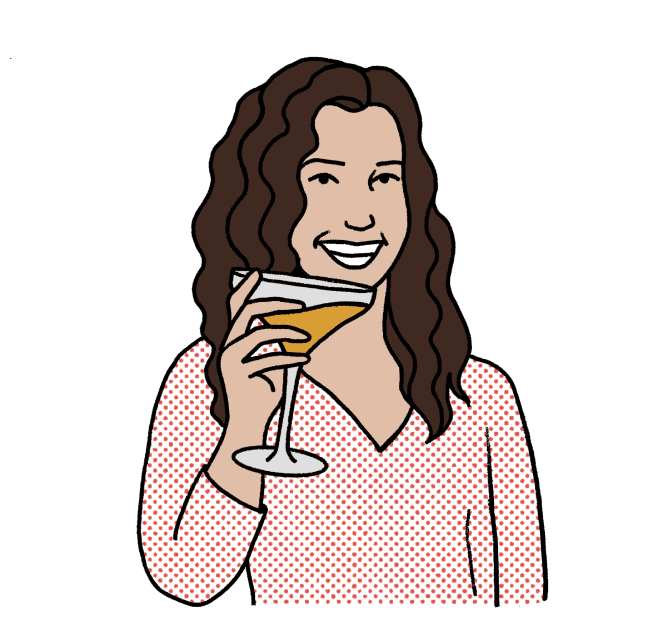Go Ahead, Be a Quitter
How learning to say no can lead to a bigger, better yes
In 2021 I started a daily yoga practice. A minimum of twenty minutes a day on the floor of my guest room, a candle flickering at the end of my mat, the lights turned low as my body twisted and bent. It was meditative and transformative, and I’d never felt healthier, calmer, or more flexible.
And then, after six months without missing a single session, I quit.
The day it happened, I got up early to write a few pages of my novel, then worked out at the YMCA, then spent the afternoon at the beach. The next morning, when I realized I’d missed yoga for the first time since January, I felt a flicker of disappointment, and then an overwhelming sense of relief.
In the beginning, my daily yoga was a ritual I reveled in and looked forward to, but after six months it had become routine, just another chore to check off my list. What I didn’t expect was that accidentally ending my yoga streak would send me on a quitting spree.
I regret to inform you…
Next up on the chopping block: my volunteer position as a reader for a literary journal. After two and a half years, I found myself skimming through submissions, resenting the time spent catching up on my queue instead of working on my own projects. I was giving more than I was getting, so I decided the current reading period would be my last.
Unpaid labor was one thing; paid work was quite another. I’d been writing a freelance column for a local magazine for years, and while the money was decent, the work was stressful—especially when I already had a demanding full-time job, a novel in progress, a writing group, and a stack of unread books. And so, drunk on the power of no, I quit that too.
In general, I’m not a quitter. Quite the opposite—I love commitment. Sometimes this is a good thing, like when my husband and I met at age 20, dated for a decade, and have now been happily married for nearly 12 years, or when I continue to write novels despite my many failures and rejections.
Other times, my desire to say yes has been to my detriment. How many terrible jobs had I stayed in due to a misguided sense of loyalty? How much stress did I take on thanks to arbitrary goals? Why have I always been so bad at saying no, and too eager to commit?
It was time to flip the script.
How to know when it’s a no
Sometimes, saying yes can open doors, whether it’s a person, an idea, or an opportunity. But every yes means saying no to something else, which is worth thinking about. What would this yes cost me? Am I comfortable closing other doors?
So how do you know if it’s a yes or no? Instead of immediately embracing every opportunity that comes your way, begin by asking yourself the following questions:
Does this fit my values? What's most important to you? How do you want to spend your time? Will this opportunity bring you closer to your goals, or push you further away? While this is a good measurement, it can’t be the only one. For example, the magazine I read submissions for fit my values (give back to the writing community! be a good literary citizen!) but a “yes” has to check more than one box.
What is my biggest priority right now? Are you in the middle of a big project? Are you trying to spend more time with your family? Do you want to get in shape? This past year I was focused on finishing my novel, which meant I had to turn down a number of opportunities. Now that I have more free time, I can take on new projects. Remember: “yes” and “no” don’t have to be permanent. It’s never too late to quit!
Will this help me learn or grow? Ideally, a “yes” should open doors, teach you something new, help you develop a skill or talent. This is the big reason I quit my freelance column: it was the same story every month, and there were better ways to use that time. The best part? My “no” created an opportunity for someone else to take over the column, someone who needed that particular “yes.”
In my day job, I work in a fairly corporate environment, where we’re ruled by our calendars. Whenever a meeting ends early, someone inevitably says, “Well, I guess I’ll give you some time back,” which always strikes me as a strange little phrase. As if time were a thing we could hold in our hands and pass back and forth, something we can give and take.
But maybe it’s not as strange as it sounds. Maybe that’s the point and the power of quitting. Too often we view “no” as a locked door; in reality, it’s an empty room that you can fill with your next “yes.”
Choose wisely. And if you make a mistake, you have my permission to quit.
Go Ahead, Be a Quitter
How learning to say no can lead to a bigger, better yes
In 2021 I started a daily yoga practice. A minimum of twenty minutes a day on the floor of my guest room, a candle flickering at the end of my mat, the lights turned low as my body twisted and bent. It was meditative and transformative, and I’d never felt healthier, calmer, or more flexible.
And then, after six months without missing a single session, I quit.
The day it happened, I got up early to write a few pages of my novel, then worked out at the YMCA, then spent the afternoon at the beach. The next morning, when I realized I’d missed yoga for the first time since January, I felt a flicker of disappointment, and then an overwhelming sense of relief.
In the beginning, my daily yoga was a ritual I reveled in and looked forward to, but after six months it had become routine, just another chore to check off my list. What I didn’t expect was that accidentally ending my yoga streak would send me on a quitting spree.
I regret to inform you…
Next up on the chopping block: my volunteer position as a reader for a literary journal. After two and a half years, I found myself skimming through submissions, resenting the time spent catching up on my queue instead of working on my own projects. I was giving more than I was getting, so I decided the current reading period would be my last.
Unpaid labor was one thing; paid work was quite another. I’d been writing a freelance column for a local magazine for years, and while the money was decent, the work was stressful—especially when I already had a demanding full-time job, a novel in progress, a writing group, and a stack of unread books. And so, drunk on the power of no, I quit that too.
In general, I’m not a quitter. Quite the opposite—I love commitment. Sometimes this is a good thing, like when my husband and I met at age 20, dated for a decade, and have now been happily married for nearly 12 years, or when I continue to write novels despite my many failures and rejections.
Other times, my desire to say yes has been to my detriment. How many terrible jobs had I stayed in due to a misguided sense of loyalty? How much stress did I take on thanks to arbitrary goals? Why have I always been so bad at saying no, and too eager to commit?
It was time to flip the script.
How to know when it’s a no
Sometimes, saying yes can open doors, whether it’s a person, an idea, or an opportunity. But every yes means saying no to something else, which is worth thinking about. What would this yes cost me? Am I comfortable closing other doors?
So how do you know if it’s a yes or no? Instead of immediately embracing every opportunity that comes your way, begin by asking yourself the following questions:
Does this fit my values? What's most important to you? How do you want to spend your time? Will this opportunity bring you closer to your goals, or push you further away? While this is a good measurement, it can’t be the only one. For example, the magazine I read submissions for fit my values (give back to the writing community! be a good literary citizen!) but a “yes” has to check more than one box.
What is my biggest priority right now? Are you in the middle of a big project? Are you trying to spend more time with your family? Do you want to get in shape? This past year I was focused on finishing my novel, which meant I had to turn down a number of opportunities. Now that I have more free time, I can take on new projects. Remember: “yes” and “no” don’t have to be permanent. It’s never too late to quit!
Will this help me learn or grow? Ideally, a “yes” should open doors, teach you something new, help you develop a skill or talent. This is the big reason I quit my freelance column: it was the same story every month, and there were better ways to use that time. The best part? My “no” created an opportunity for someone else to take over the column, someone who needed that particular “yes.”
In my day job, I work in a fairly corporate environment, where we’re ruled by our calendars. Whenever a meeting ends early, someone inevitably says, “Well, I guess I’ll give you some time back,” which always strikes me as a strange little phrase. As if time were a thing we could hold in our hands and pass back and forth, something we can give and take.
But maybe it’s not as strange as it sounds. Maybe that’s the point and the power of quitting. Too often we view “no” as a locked door; in reality, it’s an empty room that you can fill with your next “yes.”
Choose wisely. And if you make a mistake, you have my permission to quit.
Go Ahead, Be a Quitter
How learning to say no can lead to a bigger, better yes
In 2021 I started a daily yoga practice. A minimum of twenty minutes a day on the floor of my guest room, a candle flickering at the end of my mat, the lights turned low as my body twisted and bent. It was meditative and transformative, and I’d never felt healthier, calmer, or more flexible.
And then, after six months without missing a single session, I quit.
The day it happened, I got up early to write a few pages of my novel, then worked out at the YMCA, then spent the afternoon at the beach. The next morning, when I realized I’d missed yoga for the first time since January, I felt a flicker of disappointment, and then an overwhelming sense of relief.
In the beginning, my daily yoga was a ritual I reveled in and looked forward to, but after six months it had become routine, just another chore to check off my list. What I didn’t expect was that accidentally ending my yoga streak would send me on a quitting spree.
I regret to inform you…
Next up on the chopping block: my volunteer position as a reader for a literary journal. After two and a half years, I found myself skimming through submissions, resenting the time spent catching up on my queue instead of working on my own projects. I was giving more than I was getting, so I decided the current reading period would be my last.
Unpaid labor was one thing; paid work was quite another. I’d been writing a freelance column for a local magazine for years, and while the money was decent, the work was stressful—especially when I already had a demanding full-time job, a novel in progress, a writing group, and a stack of unread books. And so, drunk on the power of no, I quit that too.
In general, I’m not a quitter. Quite the opposite—I love commitment. Sometimes this is a good thing, like when my husband and I met at age 20, dated for a decade, and have now been happily married for nearly 12 years, or when I continue to write novels despite my many failures and rejections.
Other times, my desire to say yes has been to my detriment. How many terrible jobs had I stayed in due to a misguided sense of loyalty? How much stress did I take on thanks to arbitrary goals? Why have I always been so bad at saying no, and too eager to commit?
It was time to flip the script.
How to know when it’s a no
Sometimes, saying yes can open doors, whether it’s a person, an idea, or an opportunity. But every yes means saying no to something else, which is worth thinking about. What would this yes cost me? Am I comfortable closing other doors?
So how do you know if it’s a yes or no? Instead of immediately embracing every opportunity that comes your way, begin by asking yourself the following questions:
Does this fit my values? What's most important to you? How do you want to spend your time? Will this opportunity bring you closer to your goals, or push you further away? While this is a good measurement, it can’t be the only one. For example, the magazine I read submissions for fit my values (give back to the writing community! be a good literary citizen!) but a “yes” has to check more than one box.
What is my biggest priority right now? Are you in the middle of a big project? Are you trying to spend more time with your family? Do you want to get in shape? This past year I was focused on finishing my novel, which meant I had to turn down a number of opportunities. Now that I have more free time, I can take on new projects. Remember: “yes” and “no” don’t have to be permanent. It’s never too late to quit!
Will this help me learn or grow? Ideally, a “yes” should open doors, teach you something new, help you develop a skill or talent. This is the big reason I quit my freelance column: it was the same story every month, and there were better ways to use that time. The best part? My “no” created an opportunity for someone else to take over the column, someone who needed that particular “yes.”
In my day job, I work in a fairly corporate environment, where we’re ruled by our calendars. Whenever a meeting ends early, someone inevitably says, “Well, I guess I’ll give you some time back,” which always strikes me as a strange little phrase. As if time were a thing we could hold in our hands and pass back and forth, something we can give and take.
But maybe it’s not as strange as it sounds. Maybe that’s the point and the power of quitting. Too often we view “no” as a locked door; in reality, it’s an empty room that you can fill with your next “yes.”
Choose wisely. And if you make a mistake, you have my permission to quit.
Lens in your inbox
Lens features creator stories that inspire, inform, and entertain.
Subscribe to our weekly newsletter so you never miss a story.
Lens in your inbox
Lens features creator stories that inspire, inform, and entertain.
Subscribe to our weekly newsletter so you never miss a story.
Lens in your inbox
Lens features creator stories that inspire, inform, and entertain.
Subscribe to our weekly newsletter so you never miss a story.





